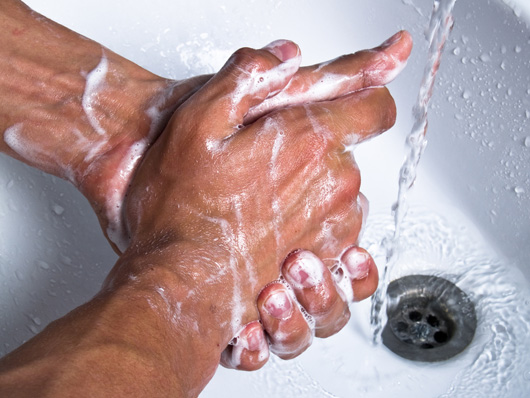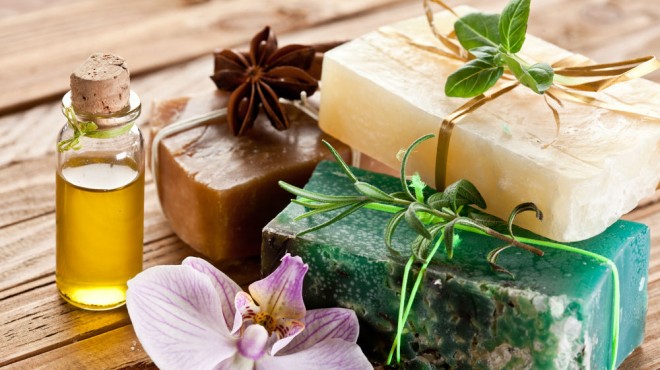 Being a soap maker and artisan. We get asked a lot of questions about soap. What’s in soap, is natural Soap bad? What’s a Syndet bar? What’s in a Syndet bar?
Being a soap maker and artisan. We get asked a lot of questions about soap. What’s in soap, is natural Soap bad? What’s a Syndet bar? What’s in a Syndet bar?
We thought a brief explanation of soap and what it does might help to answer many of the questions we get asked. Soap is made by mixing an alkali (lye / caustic) with oil or fat in a process called saponification. This is a chemical reaction… the triglyceride oils / fats are hydrolyzed into free fatty acids, these then combine with the alkali to form crude soap, this is a mix of various soap salts, excess fat or alkali, water, and liberated glycerol (glycerin) as this is broken off from the triglyceride during the reaction process.
The glycerin is a useful by-product from soap production, which can be left in the soap to act as a softening agent, utilizing the high Glycerin content for additional processing and performance benefits. The fats or oils can range, so long as you have the correct ratio of hard to soft that enables the soap bar to physically form and set. This ratio can then be adjusted to give you a bar that lasts longer and doesn’t lather, or foams higher and dissolves quicker. We excel at adjusting and manipulating these ratios, creating specialty soaps. We can use a vast array of oils in our soap, however most suppliers will use a standard range of oils like:
VEGETABLE OILS
- Palm Oil
- Palm Kernel Oil
- Coconut Oil
- Olive Oil

WHAT IS A SYNDET BAR
The word “syndet” is derived from “synthetic” combined with “detergent”. Technically it refers to the binding that occurs between different detergents, also called surfactants or tensioactive agents. These detergents, which have an affinity for oils and repel water, surround dirt with small structures that are then removed by water. From a technical viewpoint, syndets admit the possibility of using additives (colorants and fragrances) that are not suitable for soaps due to the high pH environment.
SOAP VS. SYNDET
Syndets are recommended for cleansing sensitive skin and even baby skin, as they are far more gentle and skin-friendly than traditional soaps. But remember that the anionic surfactants contained in syndets may cause sensitization problems in reactive skins. Syndets might prove to be a source of irritation for a segment of the population. They also seem less likely to cleanse like traditional soap.
Syndet bars are made using blends of synthetic surfactants, they are a different product, formulation and chemistry to that of traditional soap. Syndet soap surfactants are derived from oils, fats, or petroleum products that are processed in a wide range of chemical processes other than traditional saponification.
These synthetic surfactants make syndet bars mild cleansing bars, often pH neutral these soap bases produce cleansing and mild soap bars. The most famous and in fact the first syndet soap bar was Dove® – launched in 1955.
Common ingredients in syndet bars
- Sodium cocoyl isethionate (the most widely used)
- Sulfosuccinates
- Alpha olefin sulfonates
- Alkyl glyceryl ether sulfonate
- Sodium cocoyl monoglyceride sulfate
- Betaines
There are pros and cons for both types of soap, we can guide you as to what type of soap would work best dependent on the circumstance you need to use it for. Please reach out to us if you have questions by email at info@ahvidesigns.com or just give us a call.

